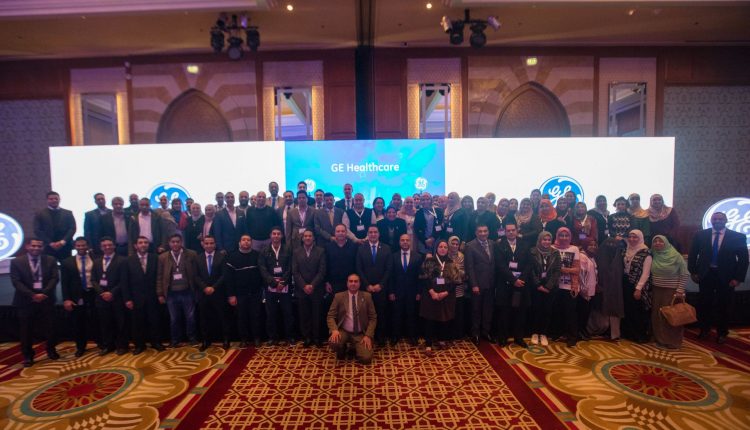As part of the reinforcement of ongoing training for cancer prevention, GE Healthcare in Egypt, organized a training and best practice sharing forum dedicated to Biomedical Excellence in the field of cancer prevention and the role of digital health.
With the participation of the Ministry of Health representatives, International Medical Center (IMC), Cairo University- Faculty of Engineering, Biomedical Engineering Department, University hospitals, private sector, and more than 150 biomedical engineers from all over the country, several national and international experts took turns to deliver technical training on healthcare technologies used in diagnostic imaging and life care support.
Amro Kandil, General Manager of GE Healthcare, North East Africa, said: “We have been present in Egypt for more than 40 years, putting in place the best support strategy for our partners in the public and private sectors. We supply and install the latest state-of-the-art medical imaging technology, and more than 100 people are dedicated to service and maintenance”.
Ahmed Abuzaid, Director of Services of GE Healthcare, North East Africa, added: “Biomedical Excellence Day reinforces our commitment to support continuing education for healthcare professionals and support the national plan for cancer control, in which training of biomedical engineers plays a major role in respect of quality control and safety of biomedical equipment »”
In addition to the technical training, the experts discussed the role of digital in the healthcare sector as well as preventive maintenance, and its impact on the patient’s care. In fact, GE Healthcare’s digital solutions provide radiologists, biomedical engineers, managers and their teams with data and analysis to predict, maintain, identify and analyze their equipment and operational activities in order to take decisions at the right time.
The impact of digital is no longer to be proven in the healthcare sector. Medical equipment generates huge amounts of data. By 2020, their volume will be multiplied by 500. The challenge is no longer just access to information, but the analysis of these data to get insights: improve the relevance of clinical decisions, optimize productivity, provide new training tools, increase collaboration between the various services and thus allow a more comprehensive approach to the patients’ care.


